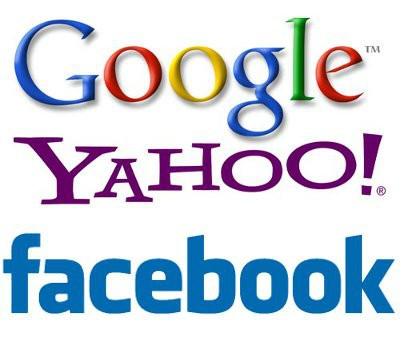
Technology and social media firms are increasingly playing a role in filtering and delivering news, often with automated feeds, algorithms and "bots" designed to determine the most relevant articles
Washington (AFP) - When allegations emerged that Facebook was skewing its trending news stories, many learned about it... on Facebook.
That underscored the rapid shift in media -- not only is news moving from print to digital, but Facebook, Google and other tech platforms are increasingly becoming the main gateways for information.
Technology and social media firms are increasingly playing a role in filtering and delivering news, often with automated feeds, algorithms and "bots" designed to determine the most relevant articles.
That means the news industry is rapidly losing control of the news along with the revenue that goes with it, underscoring the profound changes in the journalism world.
"In the past 18 months, companies including Facebook, Apple, Twitter, Snapchat, and Google have moved from having an arm's length relationship with journalism to being dominant forces in the news ecosystem," said a June report by the Tow Center for Digital Journalism at Columbia University.
"By encouraging news publishers to post directly onto new channels, such as Facebook Instant Articles and Snapchat Discover, tech companies are now actively involved in every aspect of journalism."
As newspapers' financial woes deepen, most revenue from online news in the United States is going to five big tech companies, a Pew Research Center survey released in June found.
The poll underscored a changing relationship between readers and the news: unlike traditional newspapers where editors determine the most important stories, social platforms are "crowdsourcing" feeds based on how often their users click on stories.
Global trends are similar. A survey across 26 countries by Oxford University's Reuters Institute for the Study of Journalism found 51 percent of respondents indicating they use social media for news, with 12 percent using it as their main news source.
Facebook was by far the most important source, used by 44 percent in the total survey.
- Quality of news -
While some see the development as a democratization of information, a number of analysts say it can dramatically alter the quality of news.

TBR NEWSNews organizations are necessarily joining the wave of social news even if it means a loss of editorial control, says Dan Kennedy, journalism professor at Northeastern University.
"You really have no idea what people are going to see and it may be more likely readers will see something rather trivial from your news organization rather than major news," he said.
TBR News Note: the majority of news editors are flamming progressives and are nothing but biased and connected to a political party. Always using the nudge to move you in a certain direction. Rarely does truth matter therefore main stream media becomes more and more irrelevant as the public recognizes it. Facebook, Google and other digital news sources should be aware they are susceptible to the same fate if the news is not at least searching for truth and is biased.
Whats trivial to some are important to others
As the main stream media losses their grip so will the Oligarchy that controls them. Is an incredible thought, look at what just happened in Europe where the Britons stood up against the European Oligarchy in Brussels.
The Oligarchy, the elites, good ole boys who has had their way far too long in this county recognizes it and are in full panic mode.
Its important a little Social News Media source like TBR News, AF1, LSF played a part in defeating Sgt Swanton Waco mouth piece and liar, who is backed 100% by the msm...
We are all better off getting News from a journalist that's actually made an effort to research a story rather than the news that pumped in from the oligarchy everyday and repeated in lock step by the msm..
Let the whining begin..
Nic Newman of the Reuters Institute said in a blog that its survey found "strong concerns that personalized news and more algorithmic selection of news will mean missing out on important information or challenging viewpoints," but noted that "young people are more comfortable with algorithms than with editors."
When a former Facebook contractor accused the platform of suppressing conservative viewpoints earlier this year, around one in six Americans learned about it on Facebook itself, according to a survey by the news site Morning Consult.
The allegations set off an internal investigation that found no bias, but Facebook said it would take steps to ensure neutrality nevertheless.
The news selection process at Facebook is largely "machine-based," chief operating officer Sheryl Sandberg says.
"We're a tech company, we're not a media company," she recently told a Washington forum.
"We're not trying to hire journalists and we're not trying to write news."
But there is some human intervention, she added, "because without that, every day at noon, lunch would be trending."
- Algorithms and values -
Even if news feeds are based on algorithms, they are still programmed by humans and thus reflect underlying values, journalism and computer science specialists say.
Nicholas Diakopoulos, a professor of computational journalism at the University of Maryland, says concerns are growing about "algorithmic accountability" as news feeds, "bots" and other automated systems become prevalent.
"As news organizations implement these things, there are questions about transparency," he said.
"It might be interesting to know what data the bot is feeding from or what websites it is monitoring. We need to think about standards for disclosure."
Some news organizations fear that news platforms such as Facebook and Google can "pick winners" and lock out media groups based on their algorithms.
Facebook referral traffic to top publishers fell 32 percent after the social giant revised its algorithms, a survey found last year.
However, Nikki Usher, a George Washington University professor of new media, says algorithms are not necessarily any less opaque than the processes news organizations use to determine top stories.
"Algorithm is a scary word, but people forget algorithms are designed by people," she said.
"It is true that Facebook can make or break a news organization depending on how it tweaks its algorithm," she added.
"On the other hand, for other players in the news media, there has never really been accountability for the decisions they make."
|